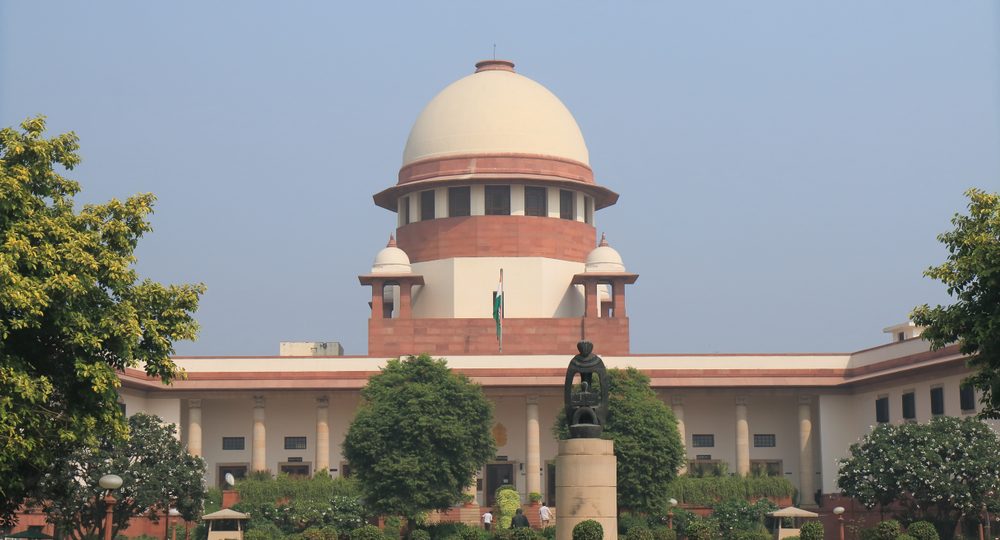Hot on the heels of the recent free trade agreement between India and the UK, the Bar Council of India has now notified amendments to its rules allowing foreign lawyers and law firms, under the basis of reciprocity, to practice foreign law in India.
Sherina Petit, Nishant Singh and Muizz Drabu of our International Arbitration team and India Practice comment on these developments in this short article.
UK-India trade deal fails to provide legal services access
While the UK-India free trade agreement announced on 6 May was largely regarded as of economic benefit to both countries, the deal does not ease restrictions on foreign lawyers operating in India, one of the few major jurisdictions still maintaining such boundaries.
This omission is widely seen as a missed opportunity to boost economic ties and legal collaboration. Reports have suggested the UK dropped requests for liberalising rules around legal services in exchange for concessions on student visa demands.
Comment
The UK-India trade agreement is a welcome development amid global trade uncertainties, promising to strengthen commercial ties and drive increased legal work as trade volumes grow. However, it is disappointing that legal services have been deliberately excluded from the deal. India’s longstanding position of keeping legal services outside its trade agreements means that under the terms of the deal, much of the India-related legal work would continue to be conducted offshore, rather than within India itself.
This was a rare opportunity for the UK to position itself ahead of Singapore – often the preferred jurisdiction for India-related cross-border legal matters – and establish a stronger foothold in one of the world’s largest legal markets. The contribution of legal services to the UK economy is substantial, and their inclusion in the trade deal would have facilitated legal services being offered within India, fostered the development of a new generation of lawyers working within UK law firms in India, and encouraged collaboration, rather than competition, between UK and Indian law firms.
Bar Council of India admits foreign lawyers to practice
On 14 May, however, the Bar Council of India (BCI) announced amendments to its rules to allow foreign lawyers and law firms to practice foreign and international law in India on a reciprocity basis. These changes aim to regulate foreign legal practice while protecting Indian advocates’ interests. Under the new rules, non-Indian lawyers will be able to advise on foreign or international law and participate in international arbitration involving such laws. Restrictions remain on them practicing Indian law or appearing in Indian courts.
Indian lawyers and firms can also now register as foreign legal practitioners, enabling them to offer consultancy in foreign and international law without giving up their right to practice Indian law. A new category, Indian-Foreign law firms, allows Indian entities to operate in both domestic and international legal spheres, provided they meet regulatory standards.
To prevent unfair competition, the BCI has imposed strict registration and renewal requirements for foreign practitioners. The rules also introduce “fly-in, fly-out” provisions, allowing foreign lawyers to temporarily advise clients in India under specific conditions.
The BCI retains oversight and will resolve disputes over the scope of permissible foreign legal activities in India.
Comment
The Bar Council of India’s amendment is a commendable step forward towards adapting to global legal trends and addressing the shortcomings in the UK-India trade deal regarding foreign legal practitioners. The regulations appear to be the outcome of the significant negotiations undertaken by the Law Society of England and Wales and the BCI. While the amendment signals an effort to liberalise the legal market, certain aspects could benefit from further refinement and clarity.
For instance, the revised provisions for fly-in, fly-out lawyers present operational challenges to cross-border legal work. Completing legal transactions within the newly imposed 60-day limit prima facie seems impractical, and the requirement for visiting lawyers to register with the BCI and disclose client details raises confidentiality and ethical considerations. These compliance measures may inadvertently slow the growth of advice being given to Indian conglomerates by increasing burdens on foreign professionals.
Additionally, the financial commitments required for registration prima facie do not align with commercial realities. While major industry players may absorb the costs, the US$25,000 registration fee, combined with the US$30,000 security deposit and additional individual registration fees, this may create a barrier for firms entering the Indian market. This could limit the availability of specialist foreign legal expertise for Indian firms and clients, particularly smaller practices as it deprives them of procuring valuable foreign legal expertise.
Further clarification from the BCI on a number of the provisions is necessary in the coming days including on compliance requirements and the payment structures set out in the amendments. This would help ensure a smoother transition and adaptation to the amendments. By offering greater clarity, the BCI can support firms and ultimately Indian corporations in efficiently addressing these changes and reduce potential disruptions to legal services for Indian clients.
Press coverage
Sherina Petit featured prominently in articles in India Business Law Journal, Law360 and Law.com on this topic.
You can find further information regarding our expertise, experience and team on our International Arbitration page.
If you require assistance from our team, please contact us.
Subscribe – In order to receive our news straight to your inbox, subscribe here. Our newsletters are sent no more than once a month.








